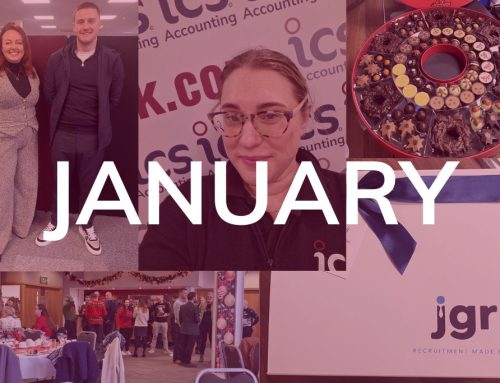A recent study found that 64% of the British workforce had at least thought of setting up their own business. For many, the biggest reason they don’t is that they’re not confident of success – in fact, almost half of all Britons who want to set up their own business don’t believe they ever will.
Working with as many business owners as we do, we’ve noticed a few things the founders of successful businesses had in common – and a few other things they can’t believe, with hindsight, they worried about. So for those of you who are doing your research but might not yet be sure you’ll take the leap, here are some common beliefs that you might or might not need to take seriously.
Businesses Don’t Need a Lot of Seed Money
Depending on your business, this may be more or less true – does your skill lie with the use of expensive tools? Do you already own them?
You’re not going to run a successful courier service without a vehicle, and a digital artist needs a drawing tablet and the software to run it – but you might well already have something that will do the job well enough to get you started.
In general, a lot of digital businesses are started by people who already owned all the tools they needed, or were just missing one. A high quality recruiter will likely take their contacts with them when going into business on their own, but they’ll benefit from a specialist contacts database.
On the other hand, a chef who wants to become a chef-owner might not be able to find a venue with both a good position and all the kitchen equipment they want. But even if your business needs investing in, you may not have to cover the full cost yourself.
Start-up loans, grants, and other investment opportunities are common. Most need to be repaid, but the business that never uses them is extremely rare, and repayment rates are designed to help the business succeed.
Similarly you may have heard that you should have six months’ income saved up, at least, before you launch a business. Again, it’s good to have that money to hand, and you should certainly have a plan for how you’ll get by until your business is bringing in a return.
But it’s better to manage a little money effectively than it is to start out with a lot of money – and it teaches you useful habits into the bargain.
You Don’t Need to Be Unique
Shows like Dragon’s Den and The Apprentice really hammer home the importance of offering something unique, and it seems to have seeped into the popular consciousness about business from there. And, again, there’s a kernel of truth to this; offering something special gives you a little market share nobody else can touch, and supporting charity is a great selling point for some potential customers.
At the same time, here’s a thought exercise for you. Picture your home town.
How many barbers and hairdressers are there? How about the number of pharmacies? Chances are good you can think of at least a half dozen of each without really trying – and many more in bigger cities.
These are businesses which survive in competition with very similar businesses, and it’s not because they have something unique – it’s because they can deliver something in demand, do it well, and build up a client base.
We’re not going to say there’s always room for another business of any given type in a particular area – you should absolutely do your own market research on that – but if you can execute the service you offer well and for a competitive price, you can succeed.
You Don’t Need to Know Everything About Running a Business to Start
Virtually nobody – possibly actually nobody – starting their first business knows everything they’ll have to know right from the start. Every business owner learns on the job – and that’s okay! It’s even okay to outsource some of the things you can’t do.
Here at ICS Accounting, for example, we support business clients across a huge range of industries in maintaining their accounts, updating their reports, and submitting necessary documents accurately, on time, and in compliance. We manage outsourced payroll for many of these businesses, too.
This frees up those business owners to focus on growing the business, satisfying their clients, and promoting the work environment they want for their team.
But even if you set these things aside, your journey with your business will involve a lot of learning and growth.
Businesses Without a Plan Fail Faster and More Often Than Businesses with One
We’ve seen this in a few industries where talented workers find themselves with no opportunity to progress their career except by becoming their own boss. The temptation is to jump right in without building a plan first.
But if you don’t have your goals locked in, if you can’t balance your budget against the time to profitability, if you don’t think through the timeline for implementing expansions and other business strategies, you’re more likely to make a mistake.
On the other hand, you’ll also need to be able to adjust the plan if things go faster than you anticipated or if you run into delays. Your management accounts – some of those reports we mentioned preparing above – are a key part of understanding when that’s happened, and keeping those up to date gives you the confidence you need to be flexible accurately.
If all this wasn’t enough, there’s one other point worth noting about a good business plan; having one makes applying for loans or other funding much easier.
You Don’t Need Everything to Be Perfect Before You Start
Of that 64% of Britons who want to start their own business, about half believe they never will. And while there are countless reasons for that, the urge to get everything just right before you begin is one of the worst.
It leads to never actually starting a project, when if you began and started to see how it worked in practice, you’d be able to change it more effectively.
Facebook began life as The Facebook. Netflix was originally a DVD rental service. Amazon makes more money now from cloud computing infrastructure than it does from selling products.
These are huge changes – the adjustments you might need to make while your business is live to find what’s perfect for you in practice will probably be much smaller and simpler.
If you have a business idea and the market knowledge to know there’s an opportunity there, why not get in touch? Our team have plenty of experience helping entrepreneurs make their dreams into a stable, successful reality.



















